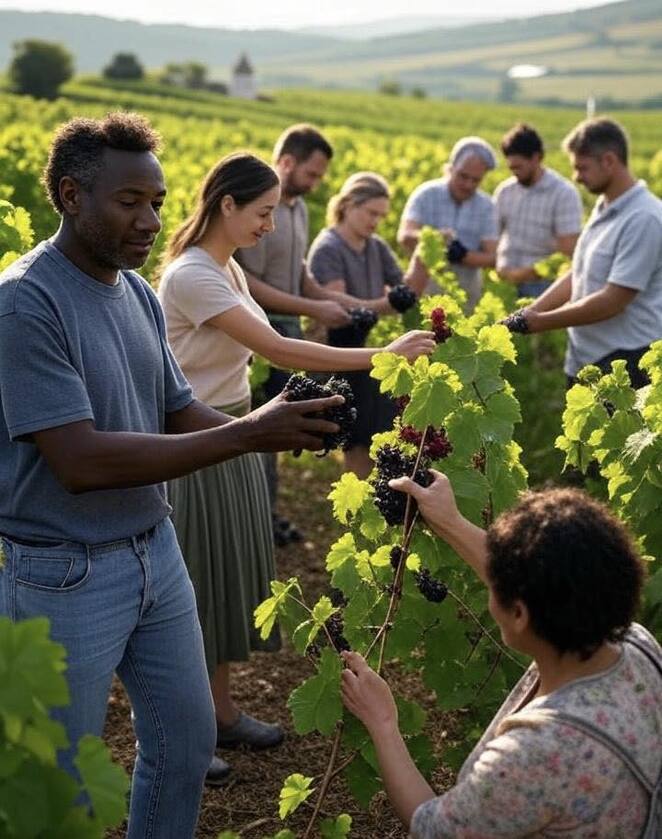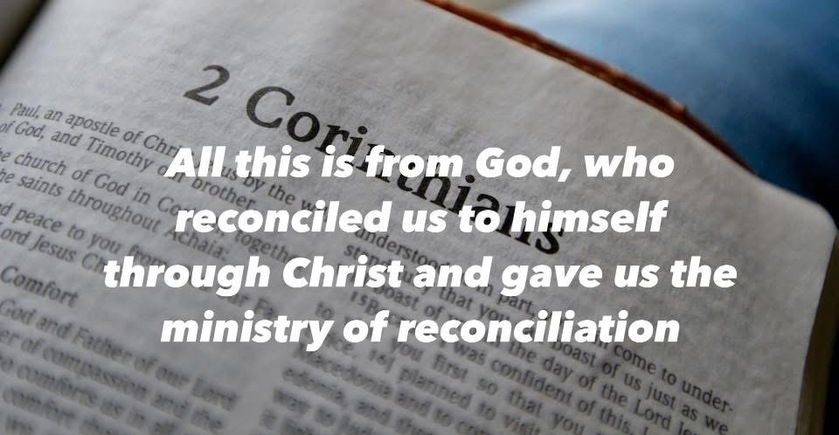The Unbreakable Love of God vs. the Danger of Sin
Romans 8:38–39
"For I am sure that neither death nor life, nor angels nor rulers, nor things present nor things to come, nor powers, nor height nor depth, nor anything else in all creation, will be able to separate us from the love of God in Christ Jesus our Lord."
This passage of the New Testament scriptures assures believers of the permanence of God’s love. And for that reason today I want to focus on this eternal truth, the Love of God IS eternal, it's so called "unending", but sin, has the power to defile, even the beloved. This is why the apostle warns us about reversing our repentance, turning back to our sins.
2 Peter 2:20–21
"For if, after they have escaped the defilements of the world through the knowledge of our Lord and Savior Jesus Christ, they are again entangled in them and overcome, the last state has become worse for them than the first. For it would have been better for them never to have known the way of righteousness than after knowing it to turn back from the holy commandment delivered to them."
The apostle Peter is warning believers of the dangers of returning to sin after knowing Christ. But Peter is speaking to the persons state of mind, their thinking, in regard to the knowledge of the Lord. But is he speaking about their salvation in Jesus Christ?
Right off the bat, I'd answer no. What comes to mind is 1 John 2:19
"They went out from us, but they were not of us; for if they had been of us, they would have continued with us. But they went out, that it might become plain that they all are not of us."
This suggests that those who depart from the faith may not have been truly saved to begin with. Sort of life "fans" of Jesus. Caught up in the hype, following along with the idea, but unchanged in their hearts, minds, and bodies.
The Calvinist view is that believers cannot lose true salvation, as God preserves them, Jesus spoke to this,
John 10:28-29
"I give them eternal life, and they will never perish, and no one will snatch them out of my hand. My Father, who has given them to me, is greater than all, and no one is able to snatch them out of the Father's hand."
Jesus makes it plain, as does Romans 8:38–39, that people no matter their status and authority cannot undo what God has done. Therefore those who fall away were never truly saved.
The Arminian view is that salvation can be forfeited through willful rejection of Jesus Christ, especially in regard to the unforgivable sin of blasphemy against the Holy Spirit, or persistent sin.
I think we should look closer into the context of the Romans 8:38–39 passage because on the surface it seems to suggest that the concern was external forces were threatening the salvic state of the believer. Like maybe the church is looking to excommunicate someone, or a ruling authority is condemning someone for not adhering to the state sponsored religion.
The passage concludes Paul’s argument in Romans 8 about the assurance of salvation for those who are in Christ. The "us" refers to believers, and Paul lists external forces; death, life, spiritual beings ("angels nor rulers" ), temporal circumstances, and any created thing, that cannot sever the bond between believers and God’s love. The focus is on the unshakable nature of God’s love and salvation, suggesting that no outside entity or power, including human institutions like the church, can take away a believer’s standing in Christ.
The phrase "nor anything else in all creation" is broad, implying that no human authority, institution, or spiritual power can override God’s saving grace for a believer. However, the passage doesn’t explicitly address the believer’s own actions or choices (e.g., willful rejection of faith), which is where the debate about losing salvation often centers.
In the 2 Peter passage, the "they" likely refers to individuals who had some exposure to the gospel, possibly even professing faith, but then deliberately reject it, becoming "entangled" in sin again. The passage suggests a personal choice to turn away, resulting in a worse spiritual state. It’s less about external forces (like the church) taking away salvation and more about the individual’s response to the gospel. Jesus spoke about this in his Parable of the Sower.
Romans 8 is Paul’s triumphant exposition of the believer’s life in the Spirit, culminating in assurance of salvation. The chapter addresses justification, sanctification, and the certainty of God’s love despite suffering and persecution. In verses 31–39, Paul responds to potential fears among Roman Christians, who faced external pressures like persecution from Jewish or Roman authorities, social ostracism, or even spiritual doubts, something we all experience from time to time no matter our devotion.
The "us" refers to believers justified by faith (Romans 5:1).
"Therefore, since we have been justified by faith, we have peace with God through our Lord Jesus Christ."
Peace, friendship with God, his love covering our sinfulness. A bond of friendship that cannot be broken. Paul’s assurance would have comforted persecuted believers that no human institution (church, synagogue, or government) or spiritual power could sever their salvation. However, the passage is silent on the believer’s own actions.
2 Peter 2 warns against false teachers who lead believers astray with heretical teachings and immoral behavior. The "they" in verses 20–21 likely refers to either these false teachers or those influenced by them, who had some exposure to the gospel. The phrase "escaped the defilements of the world through the knowledge of our Lord" suggests they encountered Christ’s truth, possibly professed faith, and experienced some moral transformation. However, by returning to sin, they become "entangled" again, resulting in a worse spiritual state. This passage echoes Jesus’ teaching in the Parable of the Sower (Matthew 13:20–22), where some receive the word with joy but fall away due to their shallow faith or worldly entanglements, or likely both. They got bogged down in the weeds of their culture, and its many distractions, and the result is a compromised faith and a mixed-up version of faith in Jesus. Likely a Jesus who mirrors their own personal identity and beliefs.
The question is:
Is Peter speaking about their salvation or their state of mind regarding the knowledge of Christ?
Peter’s focus on the "knowledge of our Lord" and "the way of righteousness" implies an intellectual and moral encounter with the gospel. The "worse state" could refer to a hardened heart or increased guilt, as they reject the truth they once embraced. This doesn’t necessarily mean they were ever truly saved and lost salvation; they may have been professing believers without genuine faith, only God knows. The seed (The Word) that falls on rocky or into thorny ground produces temporary growth but no lasting fruit. And Jesus said it's by their fruits we will know them.
Matthew 7:16-20
"You will recognize them by their fruits. Are grapes gathered from thornbushes, or figs from thistles? So, every healthy tree bears good fruit, but the diseased tree bears bad fruit. A healthy tree cannot bear bad fruit, nor can a diseased tree bear good fruit. Every tree that does not bear good fruit is cut down and thrown into the fire. Thus, you will recognize them by their fruits."
This principle: that a person’s actions ("fruits" ) reveals the authenticity of their faith, adds a practical and discerning lens to this exploration into salvation’s security. And frankly it supports my inclination toward being aligned with the Calvinist view. The assurance of God’s love empowers us to produce "good fruit" (Matthew 7:17); love, obedience, and righteousness, as evidence of our genuine faith. Secure in God’s love, in a perfect world, our actions should naturally align with His will. But not everything is perfect. Which is why Peter warns that returning to sin after knowing Christ can lead to an even worse state than before we began this spiritual journey.
Jesus, in the Sermon on the Mount, warns about false prophets and, by extension, their false disciples. Their "fruits"; actions, character, and teachings, reveals their true nature. Good fruit (righteousness, love, obedience) comes from a heart transformed by Christ, while bad fruit (sin, hypocrisy) indicates a lack of genuine faith. It's pretty straightforward who the sheep are and who are the goats.
So, let's put 2 and 2 together:
The sheep, secure in God’s love (Romans 8:38–39; John 10:28–29), bear good fruit, while the goats, who return to sin (2 Peter 2:20–21), reveal they were never truly saved (1 John 2:19), like the unfruitful soils in the Parable of the Sower. The Arminian perspective (salvation can be forfeited) is less prominent here, as the emphasis on bad fruit suggests a lack of initial faith rather than a lost salvation. They were playing at faith, playing church, delusional and ultimately became disillusioned by the whole thing.
So, what's a body to do?
What's "The Body" to do?
I'd say examine the fruit of the Spirit.
Galatians 5:22–23
"But the fruit of the Spirit is love, joy, peace, patience, kindness, goodness, faithfulness, gentleness, self-control; against such things there is no law."
Focus your spiritual energies and attention on these things. And teach others to do likewise. It's like gardening. You've got to cultivate the soil for the plants to grow and thrive. Suppress the weeds (Exhortation), rake out the rocks (Pastoral Care), add nutrients (Teachers and Preachers), and let the Lord water it in your works of mercy (Helps). He gave his "Body" these gifts for a reason. We shouldn't abuse them or neglect them.
Sheep cultivate the Spirit’s fruit, serving others (Matthew 25:35–40) as if they are serving Jesus himself, while goats neglect this, producing bad fruit or none at all (2 Peter 2:20–21; Matthew 7:19).
Garden Your Heart:
Journal about one "weed" (sin), "rock" (hurt), or "nutrient" (scripture) in your life. Take a step to address it (e.g., confess, seek counsel, study a verse). But do it. Be a doer of the word. The rest will take care of itself. Rest assured in that. Identify a way to use your spiritual gifts (e.g., encouraging a friend, serving at church) to nurture the church’s fruit. Act on it and reflect on the impact. Pray daily for the Spirit to cultivate it in you.
Prayer:
Heavenly Father, thank You for Your unbreakable love that secures us as Your sheep. Fill us with Your Spirit to produce good fruit; love, joy, peace, and more, that reflects Your glory. Help me today to suppress sin’s weeds, heal my heart’s rocks, and grow through Your Word and mercy. As part of Your Body, use my gifts to nurture fruit in others, building a thriving church. Let Your love water our efforts, bringing abundant growth. In Jesus’ name, Amen.




















